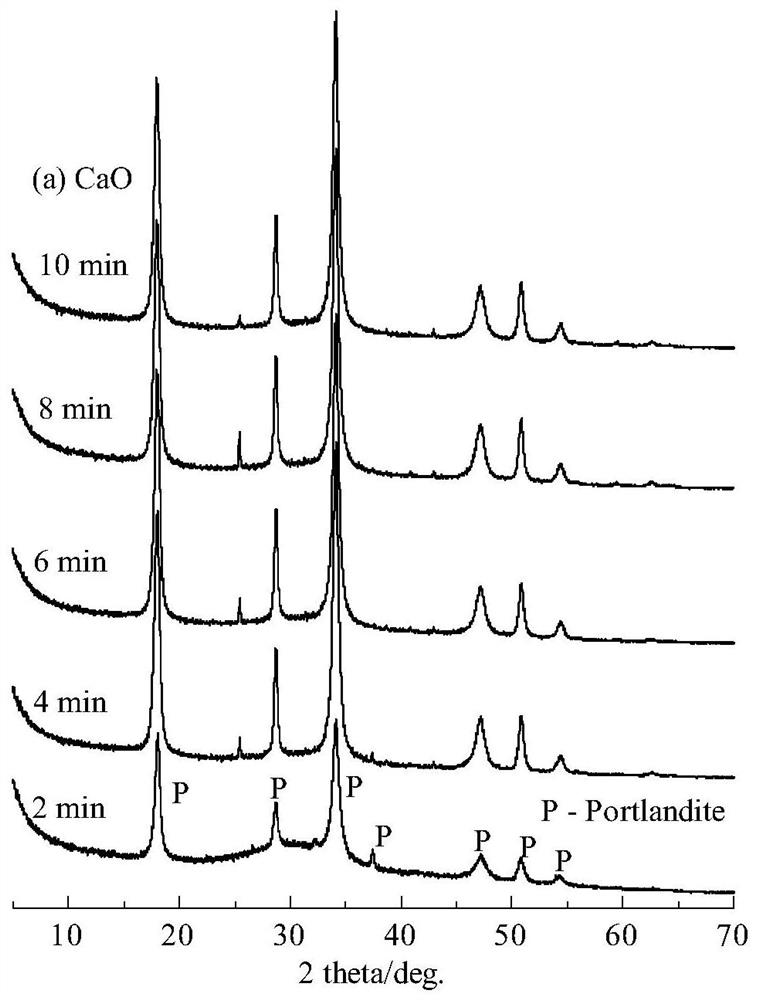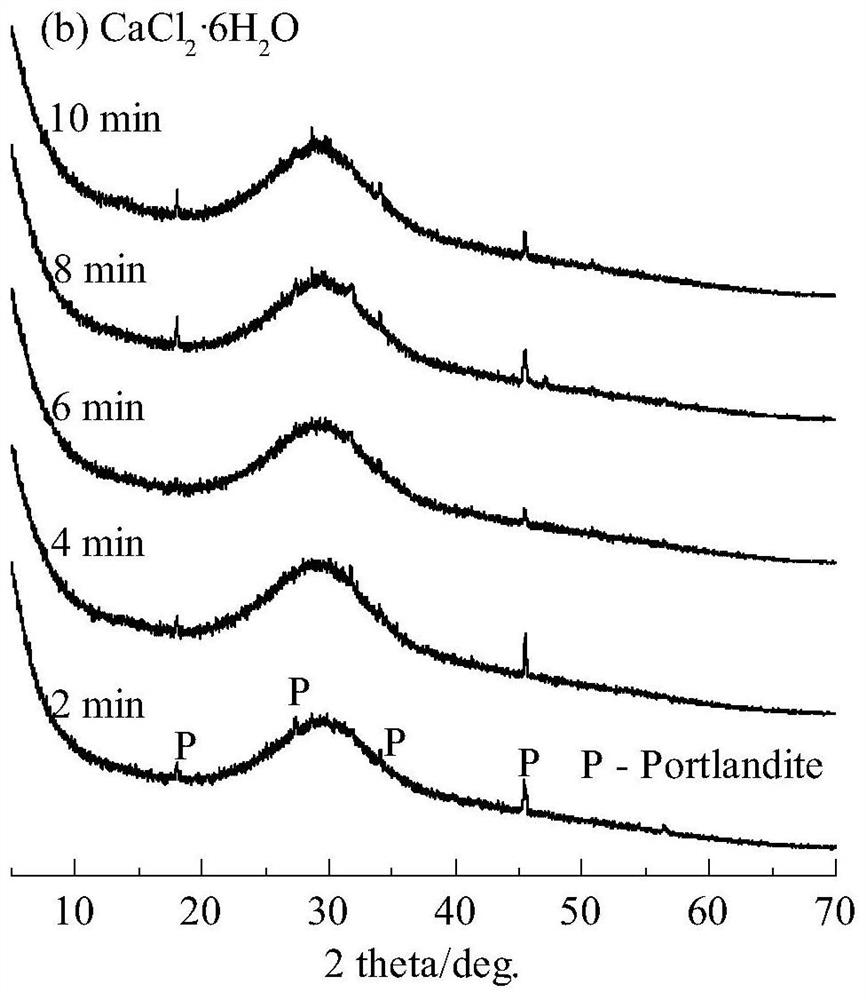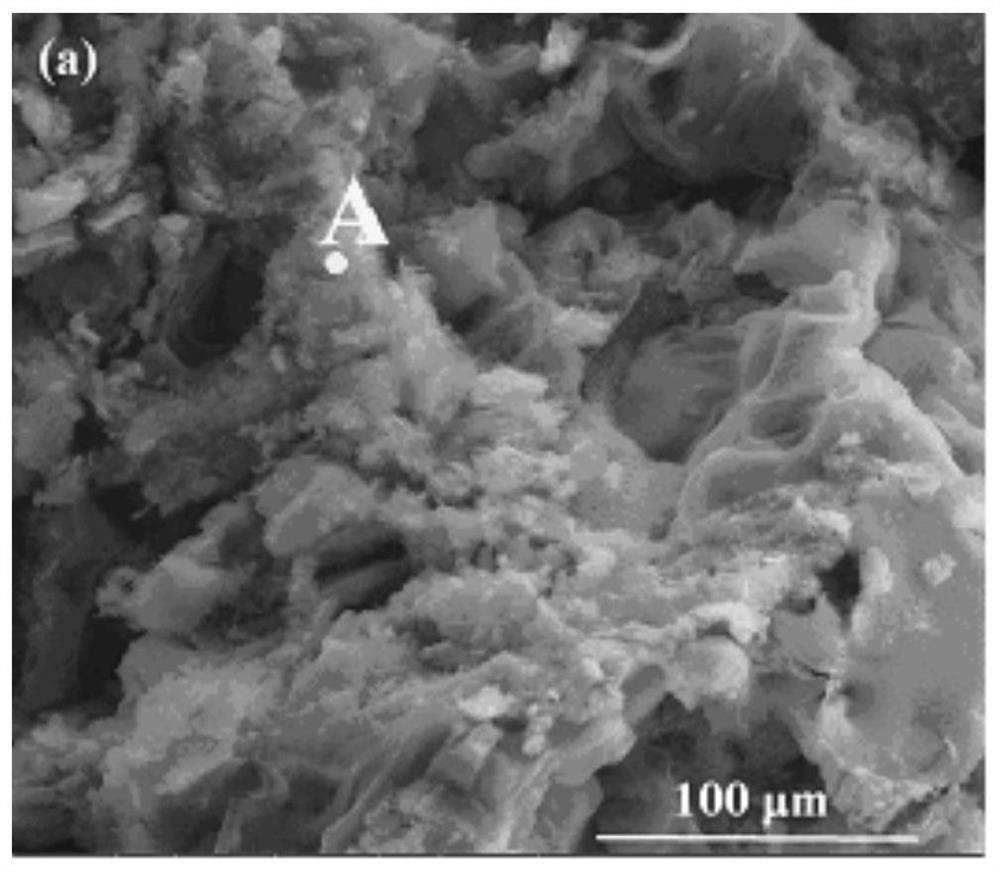Alkali-activated gelling material for 3D printing and printing method thereof
A technology of 3D printing and gelling materials, which is applied in the field of alkali-activated gelling materials for 3D printing, which can solve the problems of difficult printing of thin-walled components and cumbersome regulation of ink material properties, and achieve simple and easy printing methods, easy flow control, The effect of low risk of quality accidents
- Summary
- Abstract
- Description
- Claims
- Application Information
AI Technical Summary
Problems solved by technology
Method used
Image
Examples
Embodiment 1
[0159] Take 100kg of slag micropowder as the active powder, add 0.1kg of basalt fiber with a length of 20mm into it, add 100kg of sand with a particle size range of 0.1 to 0.5mm as aggregate, and add 20kg of 45μm sieve with 1.0% Limestone powder is used as a fine filler and mixed well to obtain a granular mixture.
[0160] Be 1.5 with 100kg modulus, the sodium silicate solution that solid content is 30% is as alkali solution, the acetylenic alcohol class Gemini (H L B value of 7.0) of 150g is mixed thereinto as surfactant, mixes 50g of Polyoxypropylene glyceryl ether was used as a defoamer, and 30 g of sodium polyphosphate was added as a stabilizer, stirred, and aged to obtain a uniform alkali activator solution with a contact angle of 15°.
[0161] The obtained particle mixture is packed into a powder box, and the inner length of the outlet of the discharge port of the powder box is 100mm and the inner width is 5mm. The inner length of the mold is 300mm, the inner width is 1...
Embodiment 2
[0167] The particle mixture and alkali activator solution used in this embodiment are all the same as in Example 1, and the mold size, nozzle size, component size, spraying method, and curing method are all the same as in Example 1, but the cloth method is different from Example 1.
[0168] The inner length of the outlet of the discharge port of the powder box is 100mm, and the inner width is 10mm. The length direction of the outlet of the discharge port is perpendicular to the width direction of the mold, and the powder box is pushed horizontally along the length direction of the mold at a speed of 100cm / min. The distance between the outlet of the discharge port and the horizontal plane is 5mm. After finishing the fabric, load 500N / m on a flat plate of 300mm×101mm 2 , keep the pressure for 30s.
[0169] As the thickness of the material layer becomes larger, the moving speed of the nozzle is reduced to 200cm / min, and the flow rate of the nozzle remains at 0.14L / min according...
Embodiment 3
[0172] The particle mixture and alkali activator solution used in this embodiment are all the same as in Example 1, the size of the mold, the size of the components, the way of distributing materials, and the way of curing are all the same as in Example 1, but the size of the nozzle is different from that of Example 1. As the nozzle size has changed, the spraying method has also changed.
[0173] The pump pressure is 0.1MPa, the inner width of the rectangular nozzle is 2mm, the inner length is 40mm, the water outlet of the nozzle is 3mm from the horizontal plane, and the moving speed of the nozzle is 100cm / min. Set the water-binder ratio to 0.3, and the relative density to 2.0, using the formula S 2 =a×h×α×β×ρ’×S 1 ×10 -7 According to the calculation, the nozzle flow rate is 0.22L / min.
[0174] The flexural compressive strength was measured, and the results are shown in Table 3.
PUM
| Property | Measurement | Unit |
|---|---|---|
| width | aaaaa | aaaaa |
| particle diameter | aaaaa | aaaaa |
| particle diameter | aaaaa | aaaaa |
Abstract
Description
Claims
Application Information
 Login to View More
Login to View More - R&D
- Intellectual Property
- Life Sciences
- Materials
- Tech Scout
- Unparalleled Data Quality
- Higher Quality Content
- 60% Fewer Hallucinations
Browse by: Latest US Patents, China's latest patents, Technical Efficacy Thesaurus, Application Domain, Technology Topic, Popular Technical Reports.
© 2025 PatSnap. All rights reserved.Legal|Privacy policy|Modern Slavery Act Transparency Statement|Sitemap|About US| Contact US: help@patsnap.com



